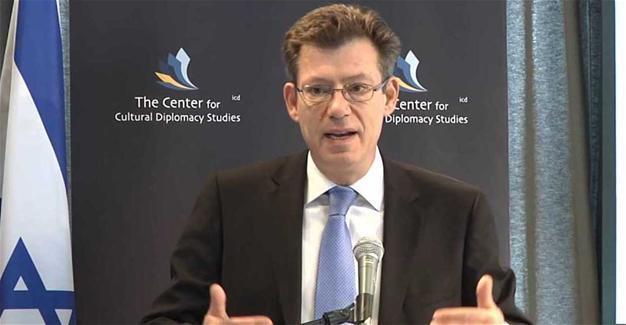Turkey, Israel do not contradict each other on Syria, says Tel Aviv
Deniz Çiyan - JERUSALEM

Turkey and Israel are not in contradiction with each other on the issue of Syria, Israeli Foreign Ministry spokesperson Emmanuel Nahshon said on March 6, while acknowledging that the two sides still do not have the same perspective.
“Israel and Turkey are not in contradiction [on Syria]. The way you look at Syria and the way we look at Syria do not contradict each other,” Nahshon told a small group of Turkish journalists who were the first group of media members to visit Israel after the Turkish-Israeli rapprochement.
“We don’t look at things in the same way but there is no potential for friction or fundamental disagreement,” he added.
Turkey has long supported Syrian rebel groups against President Bashar al-Assad, while Israel has repeatedly stressed that it wants to stay out of a civil war in its neighbor.
After a six-years halt in relations due to the Israeli raid on a Gaza-bound flotilla that killed 10 Turkish citizens in 2010, Turkey and Israel reached a deal to reestablish ties in mid-2016.
Stating that shared interests around the economy and the energy sector could lead to accelerated rapprochement, Nahshon said Ankara was at the stage of “identification and discussion” regarding the energy issue.
“We are not yet at the stage of cooperation, we are at the stage of identification and discussion,” he said, adding that the two sides were trying to understand each other’s priorities and needs on the topic.
Nahshon described the energy question as “very complex” in terms of how to use the existing platform and how to take into account other players in the region that are important energy actors.
Meanwhile, sources in Jerusalem said a diplomatic delegation from Israel will pay a visit to Turkey in March as part of talks for rapprochement.
After that visit, Israeli Economy Minister Yuval Steinitz will pay a visit to Turkey in April to attend the Atlantic Council meeting, while Turkish Economy Minister Nihat Zeybekçi is expected to visit Israel in May. A group of businessmen are also expected to accompany Zeybekçi to Israel, sources said.
Nahshon also commented on Turkey’s April 16 referendum on shifting to an executive presidential system.
“The referendum is important because the Turkish president is a very important regional actor. His political future and the instruments he will hold in his hands are also an important factor in the way this region will look in the future,” he said.
“Of course, it is extremely important and interesting,” he added.
 Turkey and Israel are not in contradiction with each other on the issue of Syria, Israeli Foreign Ministry spokesperson Emmanuel Nahshon said on March 6, while acknowledging that the two sides still do not have the same perspective.
Turkey and Israel are not in contradiction with each other on the issue of Syria, Israeli Foreign Ministry spokesperson Emmanuel Nahshon said on March 6, while acknowledging that the two sides still do not have the same perspective.